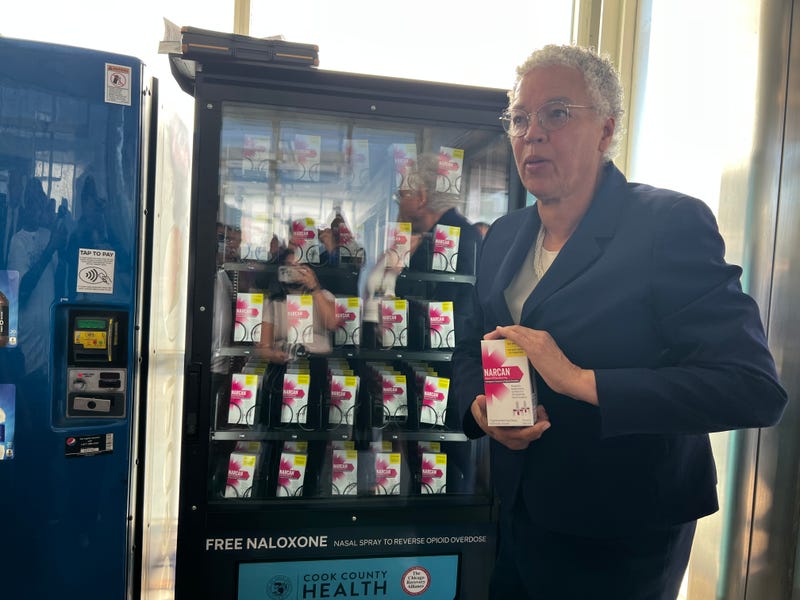
As you enter CTA train stations this week, you'll now notice naloxone, or Narcan, vending machines at some of them.
Narcan is a life-saving medication that can reverse an opioid overdose.
"By placing naloxone vending machines at five key CTA stations, we're meeting people where they are," said Cook County Board President Toni Preckwinkle. "Public transit hubs are vital arteries for our city and county, and making life saving medication available in these locations removes a significant barrier to access."
Cook County Health (CCH) invested $100,000 in the machines as part of a six month pilot program. The machines are completely free to use.
"We know that the lack of resources and public health infrastructure disproportionately impacts disinvested communities," Preckwinkle said. "This partnership with CTA is a deliberate effort to address those inequities and bring life-saving resources directly to communities that need them most."
The vending machines are located at the 47th Red Line, the Wilson Red/Purple Line, the Harlem/Lake Green Line, the Central Park Pink Line and the Jefferson Park Blue Line stations.
"These locations were strategically selected based on geography analysis that showed heightened opioid related emergency medical responses and input from surrounding communities and various community stakeholders," said Nora Leerhsen, Acting President of the Chicago Transit Authority.
She said as a transit agency that serves more than one million riders every weekday, the CTA has a responsibility to ensure a safe and comfortable transit environment.
"This collaboration allows us to provide life-saving resources while also delivering our commitment to protecting our riders and showing compassion to our city's most vulnerable," Leerhsen said. "These machines represent hope, dignity and the possibility of a second chance for those struggling with opioid addiction."
The announcement is part of ongoing efforts by CCH to expand access to resources like Narcan across the county and complement CTA’s focus of building new partnerships and enhancing existing ones to improve the transit experience.
"Our work doesn't stop here," Preckwinkle said. "This is one piece of a broader comprehensive strategy to combat the opioid crisis. We're committed to continuing our work to expand access to naloxone, provide treatment and recovery services and support those struggling with substance use."
